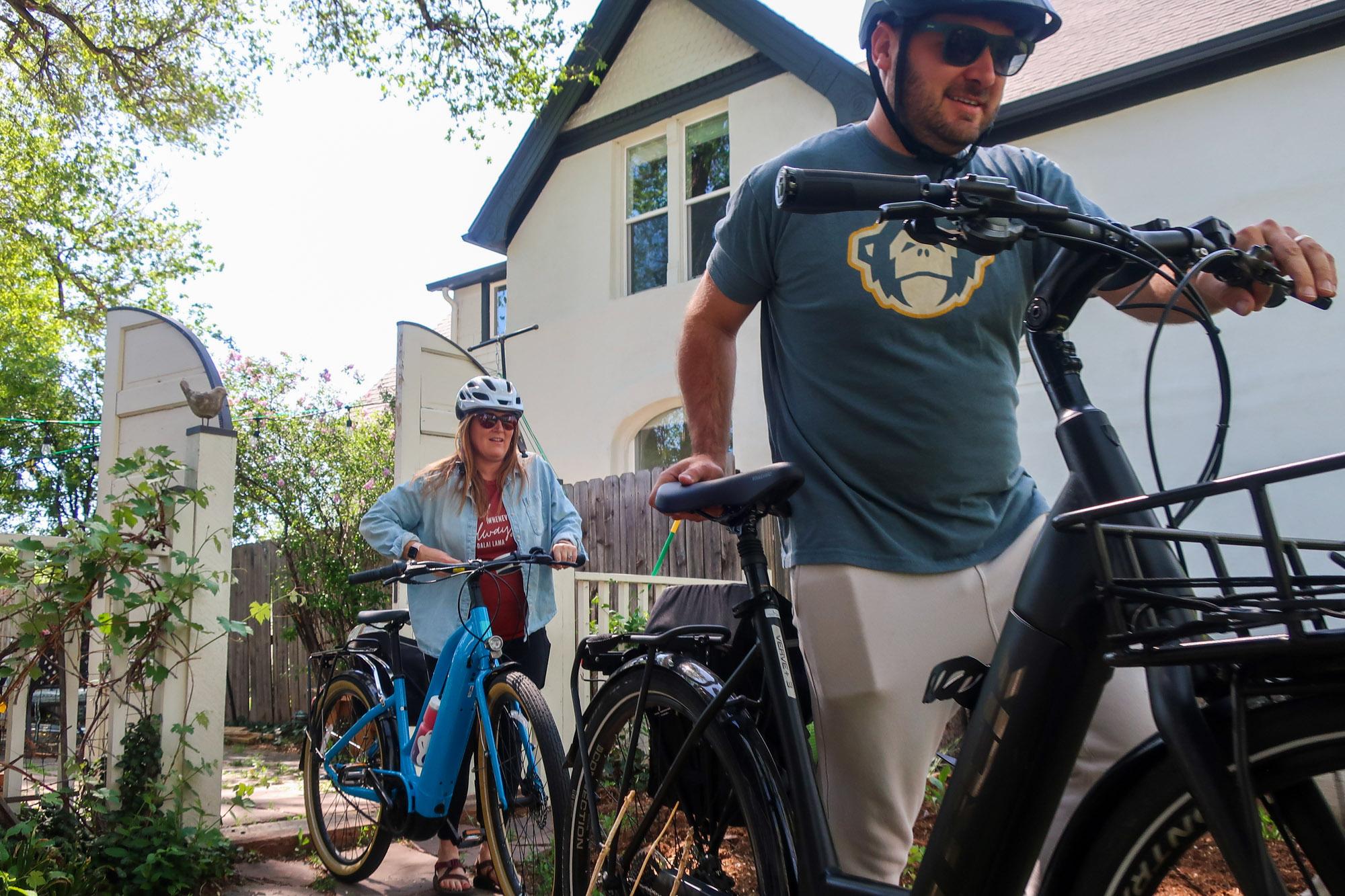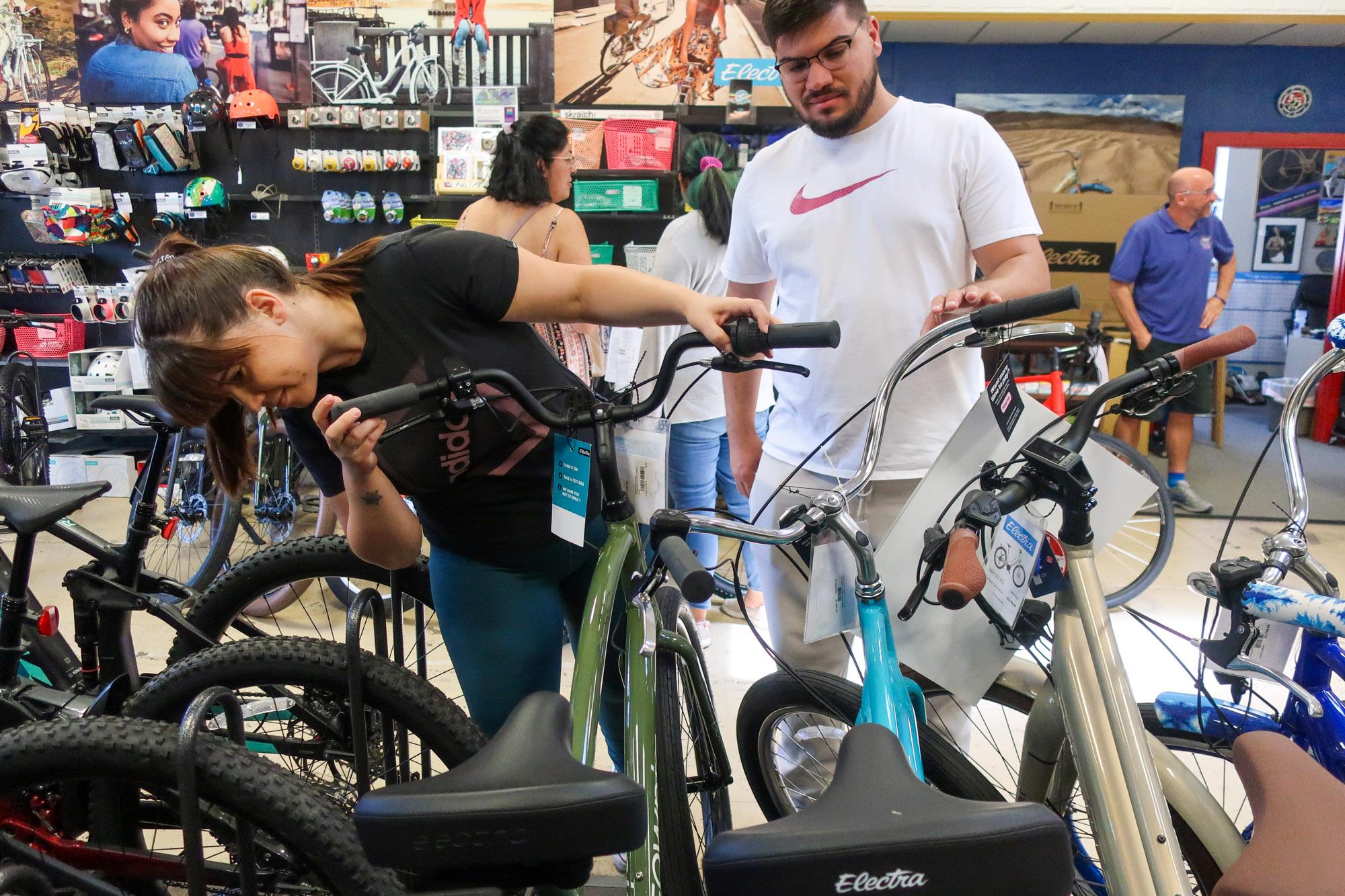The city official overseeing Denver's generous e-bike rebate program thought the word would get out -- eventually. But she didn't expect it to take off quite as quickly as it has.
"It's been really incredible and the word has spread very fast," said Grace Rink, chief climate officer for the city and county of Denver. "It's been a thrill."
Denver's rebates, paid for by a climate tax voters passed in 2020, range from $400 for all residents to $1,200 for income-qualified applicants. E-cargo bikes get another $500 credit. The city has received 3,250 applications, 40 percent of which were for income-qualified vouchers.
About 150 of those were redeemed as of last week. Rink expects that number to climb as more people get out and shop. But voucher-holders only have 60 days to redeem them; unused vouchers will be forfeited around mid-July. The city will use that unspent money to reissue them when the application process re-opens.
"From what we know of other e-bike rebate programs around the country, it is likely that maybe even 50 percent of those won't be redeemed -- a person won't be able to find a bike that they want, or they might try a lot of bikes and determine it's not for them," Rink said.
As far as how effective the program will be in its goal of lowering carbon emissions from personal vehicles -- Rink doesn't know the answer to that yet. But she's hopeful and said the city will gather data to try to understand how the e-bikes affect the city's contributions to climate change.
Climate, and the economy, were two top reasons some e-bikers gave for taking the plunge.
Viktor Dokulevski and Lilia Asenova of Denver's Five Points neighborhood said they miss the walkability and transit-friendly streets of their native Eastern European homelands of Macedonia and Bulgaria.
"It's really hard to get even basic exercise over here, because you need to go everywhere with the car," Dokulevski said. "We just wanted to have a bike so we can get around and just not always go in the car and to lower our carbon footprint. That's something we both care about."
Dokulevski said Denver's thin air makes riding a conventional (or acoustic, as the kids say) bicycle too difficult for him. So he has high hopes that the battery-assist of the e-bike will help with that. On a test ride last Saturday, he had no trouble hitting 20 miles per hour.
"I'm not tired at all at this point," Dokulevski said with a smile as a Denverite reporter struggled to keep up on his conventional bicycle. "You probably are."
They hope their new e-bike, which they said they were able to afford only because of a $1,200 city credit, will allow them to sell one of their two cars -- and save money usually spent on gasoline and parking.
"It's definitely less expensive if I take my bike," Asenova said.
E-bikes are significantly less energy-intensive than cars, too -- even electric vehicles. But Denver and the world can only reap those benefits if they replace vehicle travel. A review of a dozen studies found the drop in driving among new e-bike users varied widely by locale but characterized all the reductions as "non-trivial."

Rink said the e-bike rebates are part of a broader slate of incentives meant to lower Denver residents' climate impacts, including others for home energy electrification and electric vehicle chargers.
"The way we're going to solve the climate crisis that we're in now is one program after another, after another, that chips away at all of the different sources of greenhouse gas emissions in our community," Rink said.
Stephanie Vail and Pete Winterscheidt, who live in Sloan's Lake, bought two e-bikes in 2020 and use them for commuting, errands and even going out downtown.
"It comes with a little extra planning and extra effort," Vail said. "But I think that the times in the summer when we have that smog in Denver is a really good reminder of [how] we have to make these changes in our own environments to be able to have a greater impact."
They've since ordered an e-cargo bike to replace Winterscheidt's old Honda, which was stolen from in front of their house over the winter.
"A couple weeks ago it was actually recovered," Winterscheidt said. "But for a long time we were like, 'we're never seeing this car again.' And during that time in particular, thanks to the e-bikes, we haven't missed it at all."













